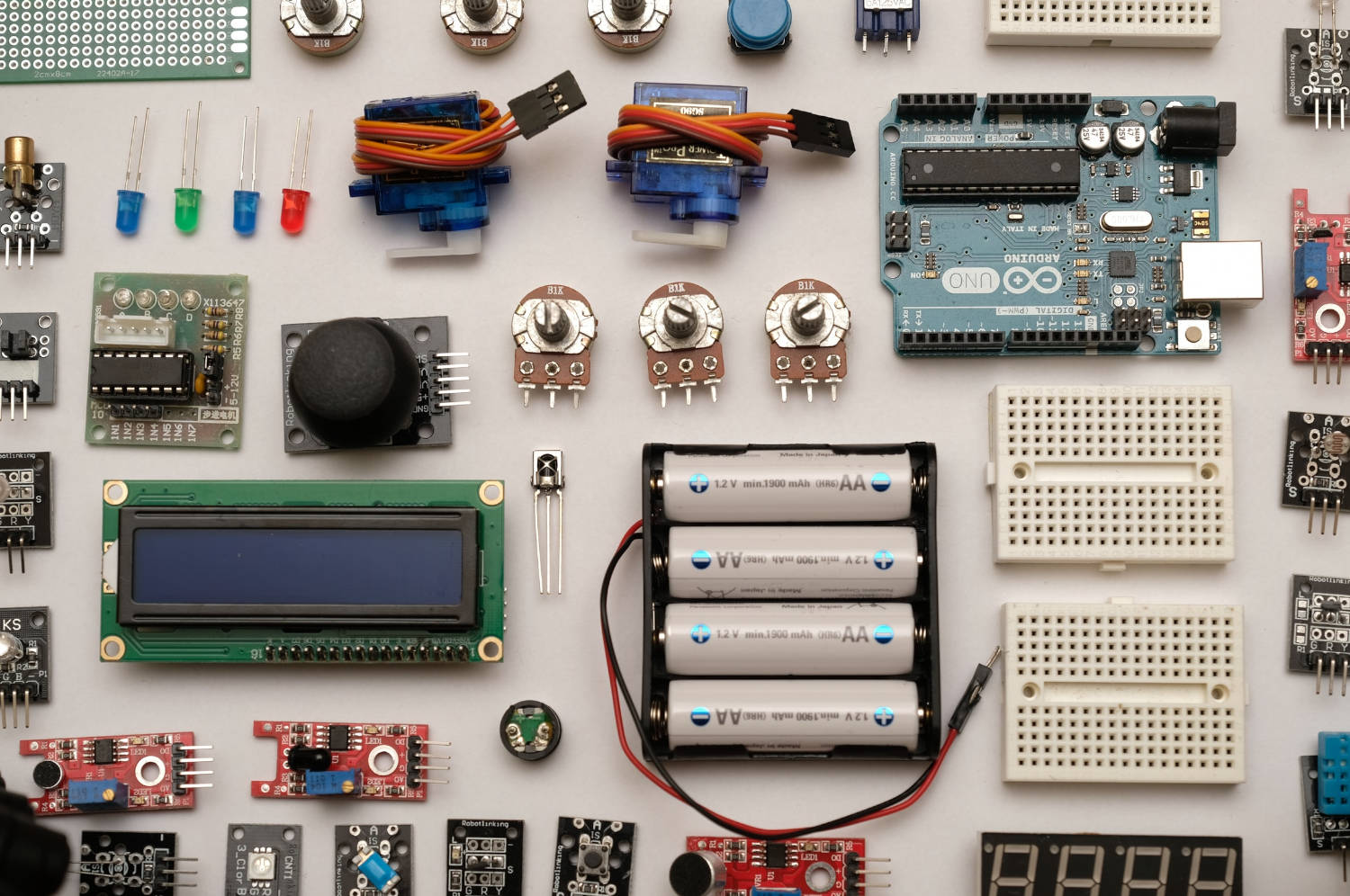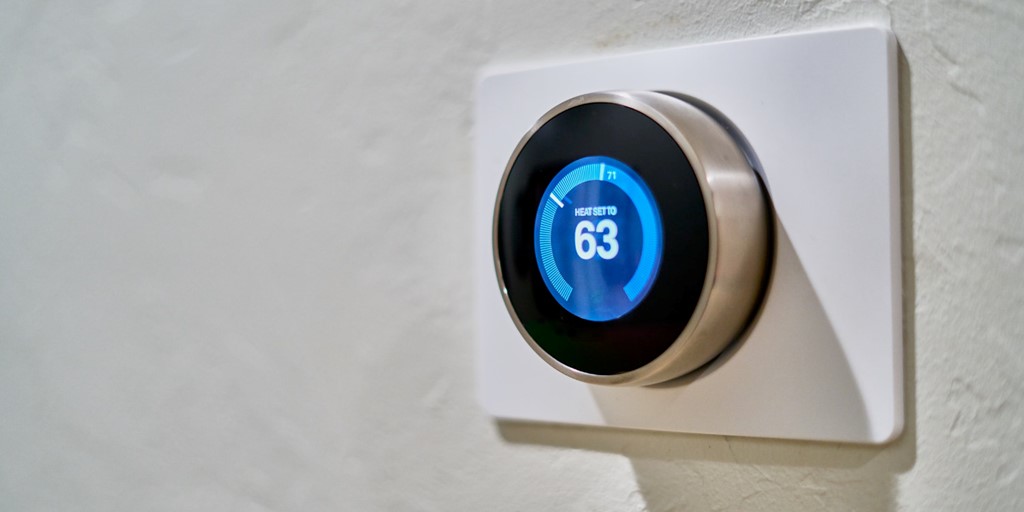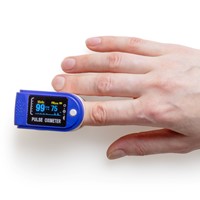Many industries are now adopting Internet of Things technology to smoothen out their daily work, make better decisions, and give their workers more time for essential tasks.
Whether those are precise medical med dispensers in a health center or super-smart inventory managers in manufacturing industries, IoT plays a significant role in transforming today’s companies into much faster and far more effective versions of themselves.
Internet of Things (IoT) is a giant network with connected devices. These devices gather and share data about how they are used and the environment they are operated in. It is all done using sensors that are embedded in every physical device. It can be your mobile phone, washing machine, electrical appliances, barcode sensors, traffic lights, and almost everything that you come across in day-to-day life - you name it. These sensors continuously emit data about the working state of the devices and later share it to the IoT platform, which integrates the collected information.
IoT for businesses has a lot of benefits, and you are about to learn why you should implement them!
Where exactly can IoT work best?
Devices in IoT can connect to the Internet and each other in several different ways. Such a device is usually designed for Wi-Fi, Ethernet, or Bluetooth, as well as Zigbee technology. All industries, from retailers and hospitality to construction and finance sectors, can benefit from IoT technology. With intelligent devices filled with valuable data, companies can gather insight into their own customers to know what they need at the moment and suggest to them the best answer to their problem. What are the areas where IoT can help?
1 - Transportation Industry
IoT can help all kinds of transportation companies smartly manage their resources. For example, a smart traffic camera can monitor road traffic and inform the driver about any traffic jams or bad weather conditions, and suggest an alternative route. But that’s not only that - you can closely monitor all of your products while they are on the way from your manufacturer to your storage. In fact, you can even check the exact temperature or humidity inside the trucks and quickly react if the conditions are poor - preventing the transported products from being damaged during travel.
2 - Healthcare Industry
Various types of IoT devices are already used in the medical industry. For example, have you ever heard about smart bands for elderly people that can monitor their health and alert the doctor if something is out of the norm? That both keeps patients feeling safe (as they are under constant care) and gives doctors a way to control patients even from a distance. And as all information from the trackers is recorded inside their system, they can also prescribe medicines or suggest medical changes based on the tracked data.
In an emergency situation, the doctor can even quickly dispatch an ambulance to the patient’s location and give information to the staff about the patient’s medical condition.
3 - Manufacturing
IoT sensors can be attached to any product in the factory - from raw materials to complete products. That helps industries keep an eye on how many materials they have in stock and which ones they should order - up to measuring the exact number of fabrics used during production. That helps them to increase their production efficiency but also prevents overspending - there’s no risk of buying too much raw material because of the disorganization of a warehouse.
But IoT devices can also be used to increase the safety of the manufacturing sites. For example, IoT devices can regularly monitor the condition of all equipment used by the employees and send a warning whenever a device or machine starts acting out of order or might break down.

Advantages & Benefits of IoT
Are you still wondering about the benefits of LoT for business? We are happy to dispel any doubts here.
IoT technology isn’t only here to make shiny, new gadgets for regular users, though. As technology develops, it’s entirely possible that IoT devices will change the way we work in the future. From wearable trackers for the elderly through which the family members and the doctors monitor the wellbeing of the senior used in healthcare to industrial monitoring systems that can look for any signs of wear or technical problems in factory lines and agriculture soil sensors - IoT devices can be used in any industry. The most significant advantage of those devices is allowing the companies to collect far more valuable data than ever before and, this way, stay ahead of the competition.
What other benefits can IoT technology bring to the business?
Lower business costs
IoT technology can help companies from all possible industries cut costs of running the business in several ways. First, by monitoring all used equipment, running regular maintenance, and alerting the repair staff if the sensors notice anything abnormal, the downtime can be cut to a minimum, and the need for lengthy and expensive repairs.
IoT sensors can also be handy when it comes to managing your storage. For example, after your final products or raw materials are tagged with IoT devices, you can know precisely how much raw materials or supplies you currently have, down to where each part is, and their storage conditions. With that information, you know exactly how many raw materials or supplies you need to purchase next without over-ordering.
And as the icing on the cake, intelligent building systems in offices can also save a good part of the company’s budget by monitoring the use of electrical energy and automatically turning off air conditioning or lights at the end of the work-day.
Understanding consumer needs and behavior
Data from IoT devices, such as wearables, is a goldmine of information about users. Although the obtained reports are very accurate, they have a lot of qualitative information about a specific device and its owner. With this data, companies can see how people use their products and predict precisely what they might be interested in in the future.
Device builders know exactly how people use them, which allows them to design products with the user in mind or offer personalized services to specific groups. This makes the satisfaction with using the product even more remarkable, and errors appear less frequently. In addition, users can count on quick responses in the event of notifications about any irregularities.
Boosted productivity and efficiency
IoT devices can also help with maximizing business productivity. Smart sensors can notify you of any issues the moment the system notices them - whether it’s a finished product breaking down, shortage of raw material, or a supply delivery problem. That helps you to cut the downtime to a minimum.
By continuously collecting data at the lowest level, industrial companies can better monitor the energy, water, and other resources they use, machine runtime, and their productive performance. In addition, the mundane tasks can be done automatically, so human resources may be transferred to more complex tasks that require personal skills, especially out-of-the-box thinking. This way, the number of workers can be minimized, which results in reduced costs of business operation.
Thanks to the Internet of Things, our homes and cities are also becoming smarter. They understand us better and are able to respond automatically to changes without our interference. That is why increasingly more people decide to build an intelligent home step by step.
Improved customer service and experience
IoT is the basis of many solutions that make life easier for consumers, and new ideas for their implementation appear every day. Thanks to the use of IoT, customer service becomes faster and more efficient. Consultants can use the data already obtained and thoroughly analyze the customer’s problem without asking for details first. Such a quick reaction to the problem means that customers have a better experience with the company. Therefore, they are satisfied with the service, recommend it, and become loyal consumers.
IoT devices constantly exchange information to be able to offer consultants more comprehensive functionality, access to information, and more intuitive operation. As a result, agents are relieved of excess responsibilities and self-analysis of data so that they can serve more customers.
The Internet of Things can also be used to provide information to programs for preventive maintenance, accelerate product development, and achieve other goals. All this will have a positive impact on the customer's experience of using the products.
Improve workplace safety
In high-risk working environments like mining, construction building, heavy industries, or even in regular factories, IoT devices can make the employees feel safer by focusing on their working conditions and the time they spend working.
In addition to the abovementioned benefit, the scheduled maintenance is also highly advantageous for ensuring operational safety and compliance with the required regulations. In turn, safe working conditions make the enterprise more attractive for investors, partners, and personnel, increasing the brand reputation and trust. Furthermore, smart devices also reduce the probability of human error during various stages of business operation, which also contributes to a higher level of safety. In addition, a network of IoT devices such as surveillance cameras, motion sensors, and other monitoring devices can be utilized to ensure the security of an enterprise and prevent thefts and even corporate espionage.
Over to you
Regardless of the industry or area of life, it is impossible to talk about the future, development, and innovation without using the phrase Internet of Things. These technologies are already having a significant impact on numerous sectors, from consumer goods to manufacturing to healthcare. Moreover, they can have an even more substantial effect combined with automation, data analysis, artificial intelligence, and other advanced technologies. So, if you take advantage of the benefits of IoT, your business may stay ahead of the competition!










 Angry Nerds (Poland)
Angry Nerds (Poland) Angry Nerds (USA)
Angry Nerds (USA) Angry Nerds (Canada)
Angry Nerds (Canada)



